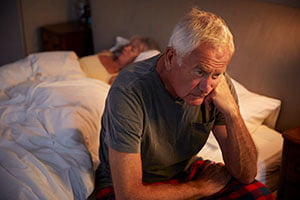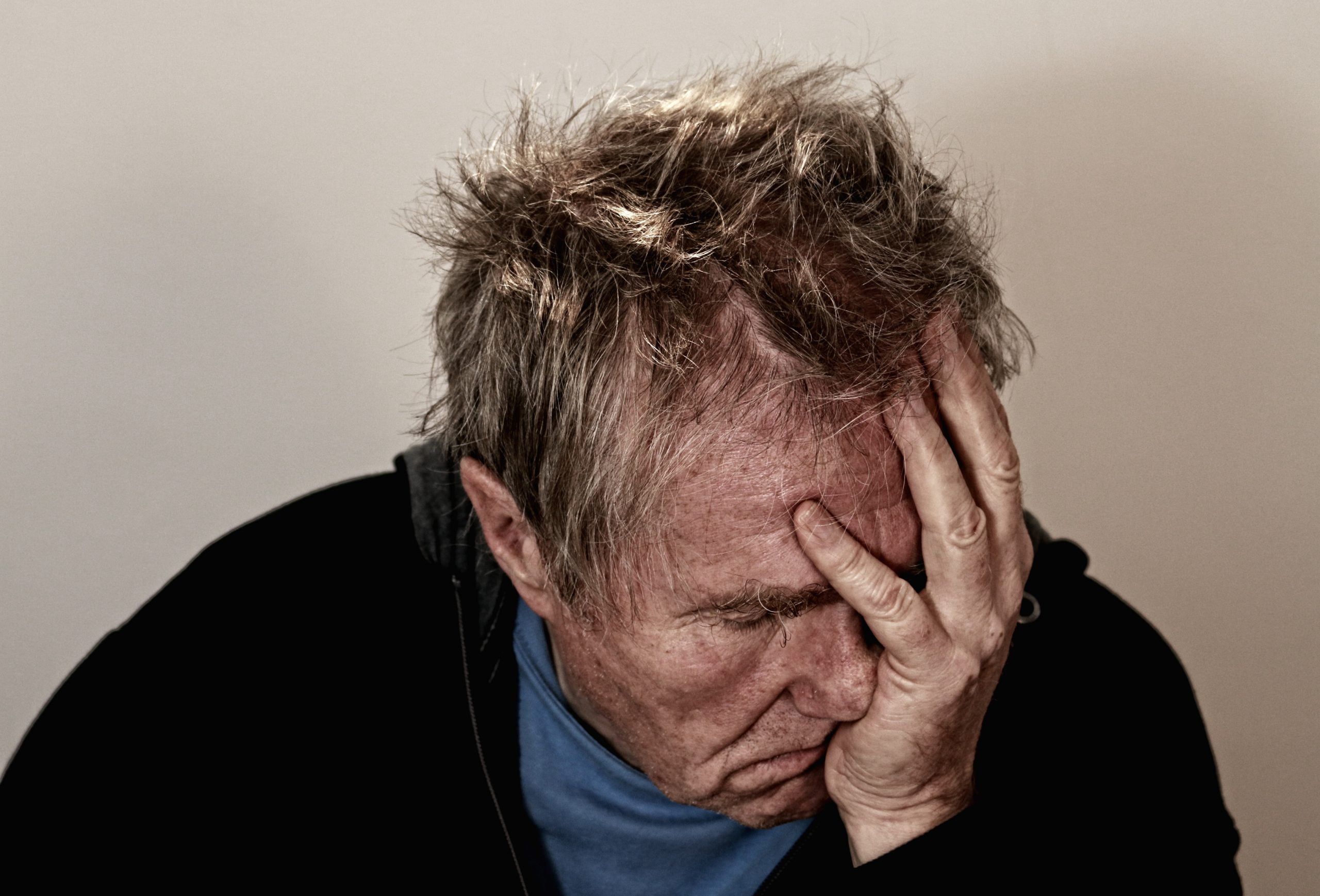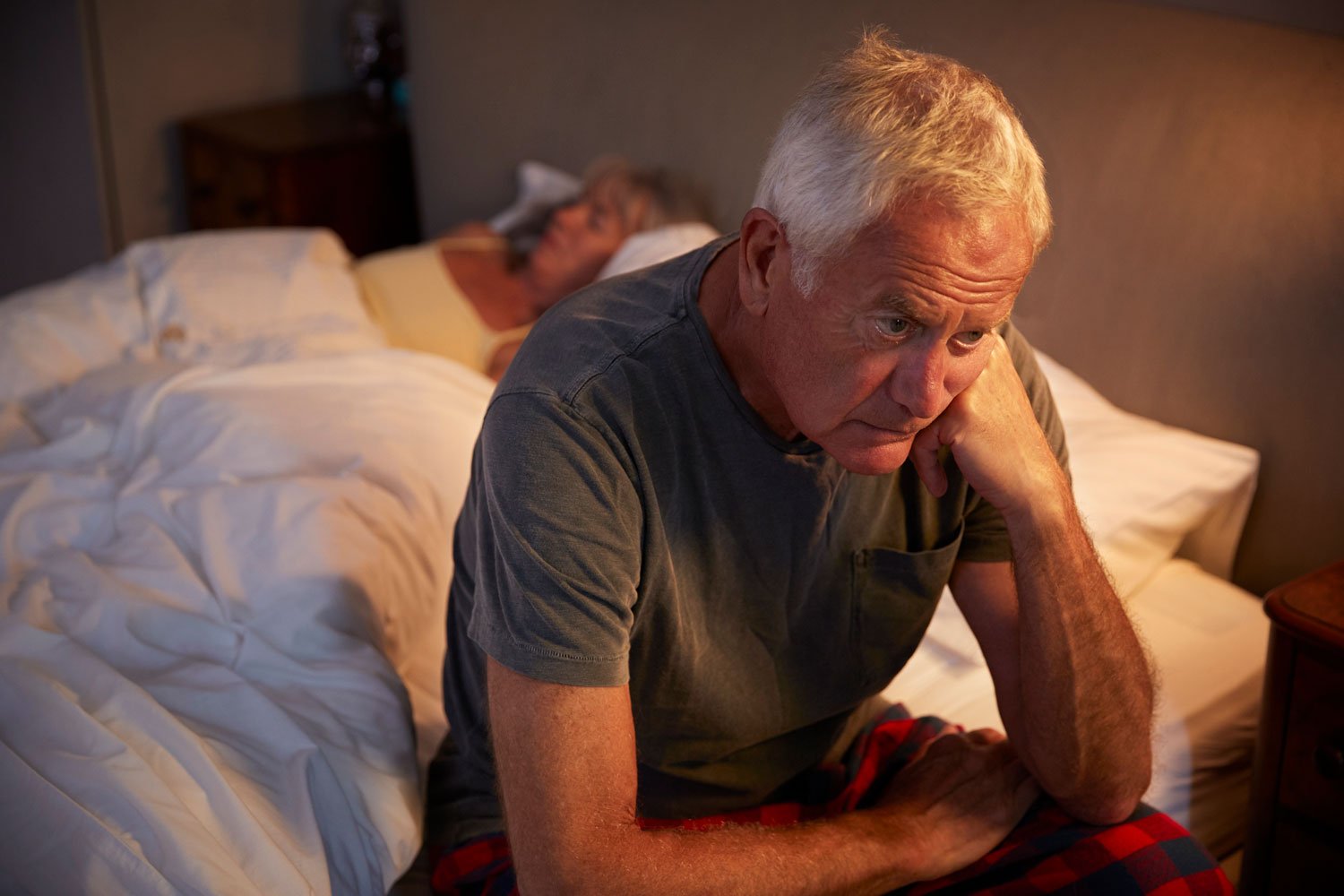Insomnia
Insomnia
It is defined as the persistent difficulty or the inability to fall and/or stay asleep. This condition may have no apparent aetiology, but is often a symptom of an underlying medical or psychological condition. It is generally not considered a disease, but rather a symptom of other pathologies (e.g., anxiety, depression or pain). Ongoing sleep impairment interferes with normal daytime function. The amount of sleep required by adults is slightly longer than 8 hours. It is classified as chronic if it persists for 4 weeks or longer.
There are two common types:
- Delayed sleep onset (i.e., difficulty getting to sleep)
- Frequent awakenings (i.e., difficulty staying asleep)
Possible Causes
- Psychiatric and neurologic disorders: stress, anxiety, depression, bipolar disorder, dementia, Parkinson’s disease, restless leg syndrome, post-traumatic stress disorder.
- Medical problems that can cause: asthma, allergies, Parkinson’s disease, hyperthyroidism, acid reflux, kidney disease, cancer, chronic pain
- Sleep disorders that can cause: sleep apnoea, narcolepsy, restless legs syndrome.
- Substance abuse: caffeine, alcohol, recreational drugs, long-term sedative use, stimulants; nicotine can cause restlessness while quitting smoking can cause transient insomnia.
- Disruption of circadian rhythms: shift work; travel across time zones.
- Menopause: It is present in 30% to 40% of menopausal women. It may be due to hot flushes and night sweats, anxiety, and/or change in progesterone levels.
- Certain medications: decongestants and bronchodilators, and beta-blockers may lead to a variety of sleep disorders including mild, transient insomnia
- Other: high-fat diet, lack of exercise, food sensitivities and blood sugar disorders have all been linked.
Signs And Symptoms
The consequences of lack of sleep, particularly when prolonged, include:
- Decreased concentration and diminished memory
- Daytime drowsiness and impaired functioning/task performance
- Less enjoyment of activities and social interaction
- Increased likelihood of alcohol and other substance abuse
- Headaches
- Irritability and mood disorders
- Waking unrefreshed in the morning, despite feeling tired.
- Anticipatory anxiety; It can become a vicious cycle with bed and bedtime coming to represent restlessness and anxiety
How Can Natural Medicine Help?
We can provide natural treatment for the relief. Get a good night sleep with the use of a wide range of herbal medicines and nutritional supplements. Linda will provide a specialised treatment plan that will not only help you to fall asleep but stay asleep, as well as treating the underlying problems
Other Services & Treatments
Call Today To Book Your Appointment
We are located at 352 St Georges Road, Thornbury VIC 3071, servicing Northcote, Preston and the surrounding Northern Suburbs.




















